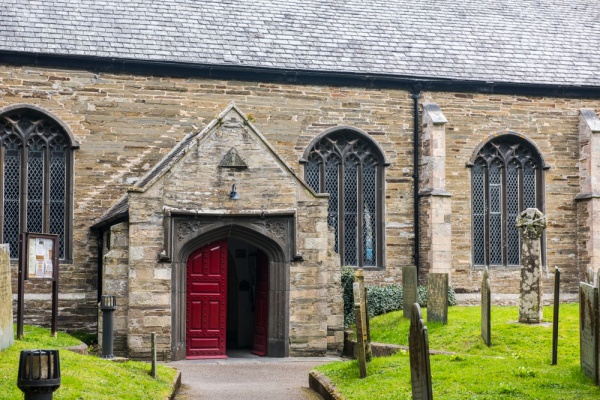Celebrating Devon Day and St Petroc.
We celebrate Devon Day each year on 4th June, it happens to coincide with Saint Petroc’s feast day. The Devon flag is dedicated to Saint Petroc, it was officially registered in July 2003.
 Petroc was indeed a saint, he travelled extensively developing monasteries and sharing his Christian faith.
Petroc was indeed a saint, he travelled extensively developing monasteries and sharing his Christian faith.
Born in South Wales, he was so much more than a Saint – he was also a Prince. It is said that after the death of his father when the people of Glamorgan (or Glywysing as it was) called for Petroc to take on the crown. Petroc, however, wished to pursue a more religious life and declined the crown in favour of studying his faith in Ireland.
His Welsh heritage is often disputed, with many people preferring him to be of Cornish descent. When he returned from his studies in Ireland, he was said to have landed on the North coast of Cornwall, in Llanwethinoc, or Padstow is it known today … “Petroc’s Stow”.
It was in Padstow that he built a monastery, school, farm, and St Petroc’s Church to serve the monks and local population.
Saint Petroc founded churches in many other locations throughout Britain and Wales and even Brittany where relics relating to Petroc can also be found. In Devon, Barnstaple in particular, you will find the remains of many religious buildings named after him. There are some 18 churches dedicated to Saint Petroc in Devon.
Little is known about the origins of his name, Petroc (or Pedrog). According to sources, it’s likely to mean “rock”, or possibly a Celtic variation of Peter or Patrick. He was referred to as ‘wolf tamer’ having apparently returned to Britain with a wolf companion that he adopted on his travels through India.
 Petroc sadly died before he was able to return to his home in Padstow. His body was returned to the monastery his founded in Padstow for burial. But his travels didn’t end there. It is said that a French monk stole Petroc’s bones taking them to France where they were immediately pursued by a monk from the Padstow monastery. His bones were successfully retrieved and returned to Padstow in an ivory casket where they remained, in peace.
Petroc sadly died before he was able to return to his home in Padstow. His body was returned to the monastery his founded in Padstow for burial. But his travels didn’t end there. It is said that a French monk stole Petroc’s bones taking them to France where they were immediately pursued by a monk from the Padstow monastery. His bones were successfully retrieved and returned to Padstow in an ivory casket where they remained, in peace.







